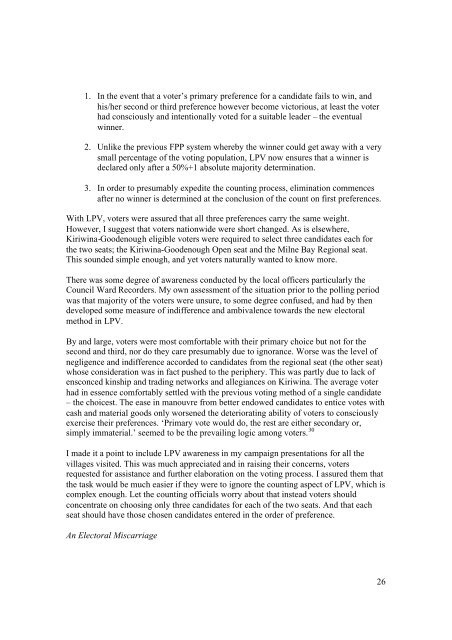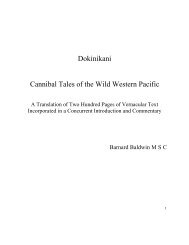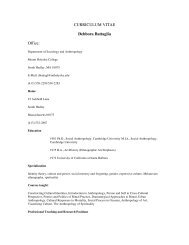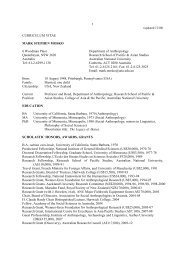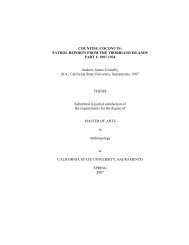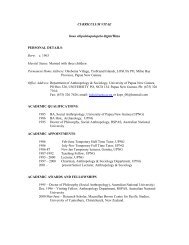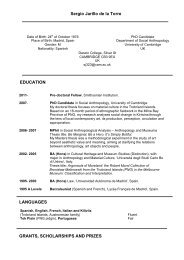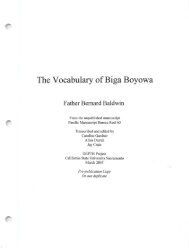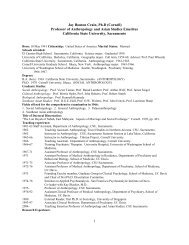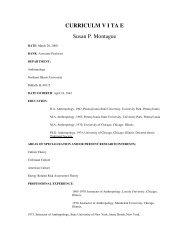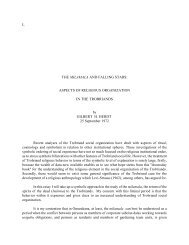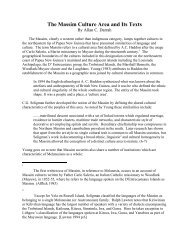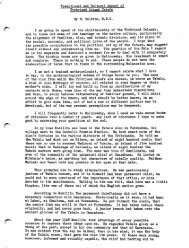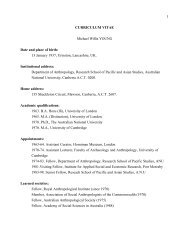Download a PDF of this paper - Trobriand Islands
Download a PDF of this paper - Trobriand Islands
Download a PDF of this paper - Trobriand Islands
Create successful ePaper yourself
Turn your PDF publications into a flip-book with our unique Google optimized e-Paper software.
1. In the event that a voter’s primary preference for a candidate fails to win, and<br />
his/her second or third preference however become victorious, at least the voter<br />
had consciously and intentionally voted for a suitable leader – the eventual<br />
winner.<br />
2. Unlike the previous FPP system whereby the winner could get away with a very<br />
small percentage <strong>of</strong> the voting population, LPV now ensures that a winner is<br />
declared only after a 50%+1 absolute majority determination.<br />
3. In order to presumably expedite the counting process, elimination commences<br />
after no winner is determined at the conclusion <strong>of</strong> the count on first preferences.<br />
With LPV, voters were assured that all three preferences carry the same weight.<br />
However, I suggest that voters nationwide were short changed. As is elsewhere,<br />
Kiriwina-Goodenough eligible voters were required to select three candidates each for<br />
the two seats; the Kiriwina-Goodenough Open seat and the Milne Bay Regional seat.<br />
This sounded simple enough, and yet voters naturally wanted to know more.<br />
There was some degree <strong>of</strong> awareness conducted by the local <strong>of</strong>ficers particularly the<br />
Council Ward Recorders. My own assessment <strong>of</strong> the situation prior to the polling period<br />
was that majority <strong>of</strong> the voters were unsure, to some degree confused, and had by then<br />
developed some measure <strong>of</strong> indifference and ambivalence towards the new electoral<br />
method in LPV.<br />
By and large, voters were most comfortable with their primary choice but not for the<br />
second and third, nor do they care presumably due to ignorance. Worse was the level <strong>of</strong><br />
negligence and indifference accorded to candidates from the regional seat (the other seat)<br />
whose consideration was in fact pushed to the periphery. This was partly due to lack <strong>of</strong><br />
ensconced kinship and trading networks and allegiances on Kiriwina. The average voter<br />
had in essence comfortably settled with the previous voting method <strong>of</strong> a single candidate<br />
– the choicest. The ease in manouvre from better endowed candidates to entice votes with<br />
cash and material goods only worsened the deteriorating ability <strong>of</strong> voters to consciously<br />
exercise their preferences. ‘Primary vote would do, the rest are either secondary or,<br />
simply immaterial.’ seemed to be the prevailing logic among voters. 30<br />
I made it a point to include LPV awareness in my campaign presentations for all the<br />
villages visited. This was much appreciated and in raising their concerns, voters<br />
requested for assistance and further elaboration on the voting process. I assured them that<br />
the task would be much easier if they were to ignore the counting aspect <strong>of</strong> LPV, which is<br />
complex enough. Let the counting <strong>of</strong>ficials worry about that instead voters should<br />
concentrate on choosing only three candidates for each <strong>of</strong> the two seats. And that each<br />
seat should have those chosen candidates entered in the order <strong>of</strong> preference.<br />
An Electoral Miscarriage<br />
26


